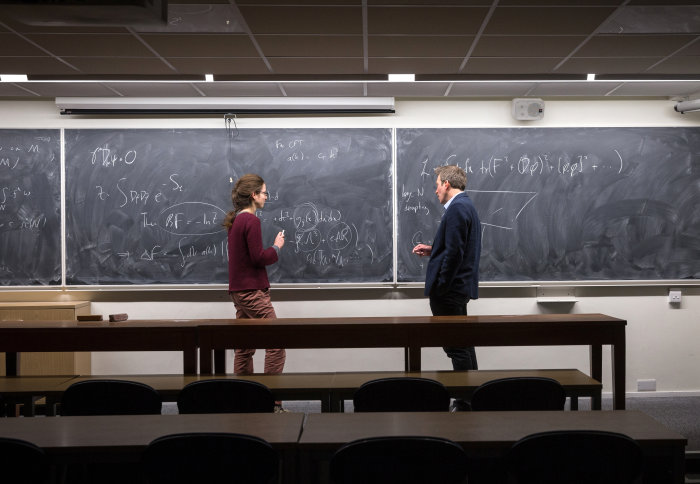New European collaborations supported by Imperial seed fund

New European collaborations have been announced in areas such as physics
New European partnerships in machine learning, drug design, quantum physics and cardiology have been funded by Imperial’s seed fund this year.
In the latest wave of grants, 16 projects have been supported by the European Partners Fund to initiate and pursue collaborations with colleagues in Germany, Italy, France, the Netherlands, Turkey and Greece.
The European Partners Fund provides up to £100,000 per year for seed funds and travel grants for Imperial academics and the call for 2019 applications is now open.

Vice Provost (Research and Enterprise) Professor Nick Jennings said: “The European Partners Fund has already led to dozens of new collaborations with top institutions across the continent in the three years it’s been running.
“Imperial has always worked closely with partners in Europe and a third of our research involves scientists based in Europe.
“We want those relationships to grow and will continue supporting European and global collaborations that will benefit society greatly.”
Some of the recently funded researchers discussed their projects:
Finding new ways to diagnose heart muscle disease

Dr Upasana Tayal, from the National Heart and Lung Institute, is collaborating with Maastricht University in the Netherlands to improve outcomes for patients with dilated cardiomyopathy (DCM) – a type of heart muscle disease.
Dr Tayal said: “For my findings to translate to clinical impact, they must be reproduced in a separate cohort of DCM patients – which represents an enormous challenge.
“The group in the Netherlands has one of the only other comparable DCM cohorts in Europe.
"This partnership will allow us to compare data and will help us to develop better tools for diagnosis and treatment of heart patients.”
Machine learning and signal processing for wireless communications

Dr Bruno Clerckx, from the Department of Electrical and Electronic Engineering, is collaborating with the Technical University of Munich (TUM) in Germany on a project investigating machine learning and signal processing for wireless communications.
Clerckx said: “The objective of this project is to join forces and exchange researchers between the two groups to consolidate our leadership in the area of multi-antenna signal processing and machine learning for wireless communications.
"The funding will help us to co-organise workshops and special sessions at conferences, and co-author influential papers in major signal processing conferences.”
Quantum systems

Dr Florian Mintert, from the Department of Physics, is collaborating with the University of Parma in Italy on driven quantum systems.
Dr Mintert said: “The University of Parma research group make idea partners for us because they bring complementary expertise.
"We have a strong background in well-controllable synthetic quantum systems, their environment coupling and their control, while the Parma group holds experience in the physics of large many-body systems with complex dynamics.”
Apply for European Partners Fund 2019
European Partners Fund - OPEN
Support is available for Imperial academics to initiate and pursue collaborations with European colleagues and ideally to lead to new science and to future applications for external funding, for example H2020. Please refer to the European Partners call document (pdf) for further details of this opportunity and complete the European Partners Application Form (word).
All those applying to undertake collaborative activities with TUM partners are required to apply via the ‘Imperial-TUM Collaboration Fund`.
Deadline for European Partners Fund applications is 12pm (noon) Tuesday 30 April 2019.
Article text (excluding photos or graphics) © Imperial College London.
Photos and graphics subject to third party copyright used with permission or © Imperial College London.
Reporter
Stephen Johns
Communications Division